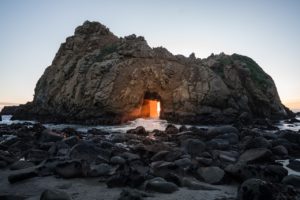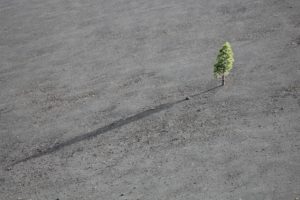
What do self-sufficiency and Whack-a-Mole have in common? Another problem pops up just when you think you’ve beat it.
This last installment on self-sufficiency focuses on King Zedekiah. In Jeremiah 38, Nebuchadnezzar, the ruler of Babylon, is poised to capture Israel. The prophet Jeremiah has preached in vain for Israel to repent and turn back to God. For his efforts, some of King Zedekiah’s officials threw Jeremiah into the cistern of Malchiah.
Now that wasn’t just some local farmer’s well. It was a reservoir, somewhere between fifteen and twenty feet deep, that stored water for the entire community. When the Bible said Jeremiah sank into its mud, it didn’t mean his sandals got stuck in muck. It meant he sank so far that he was in danger of drowning.
King Zedekiah knows the threat from Nebuchadnezzar is on the horizon. He orders Jeremiah pulled out of the cistern then talks with him about Israel’s dilemma in a deliberately private spot (“the third entry that is in the house of the Lord”).
That was between the king’s palace and the Temple, and commentators say that’s where the prison was. No wonder Jeremiah didn’t want to talk with the king—he was sure Zedekiah would put him to death (vs. 15). After all, they were at the right site for it.
Zedekiah tries to control the circumstances and the conversation, but the upshot is he’s afraid of the people of Israel will abuse him for what’s about to happen to Israel.
The less we fear God, the more we fear men—and the more we veer from good judgment.
Long story short, Zedekiah doesn’t listen to Jeremiah’s last plea to do what God commands.
Why the disobedience? Zedekiah had an eleven-year history of digging holes for himself. But the root of his final disobedience was that he clung stubbornly to his self-sufficiency.
In verses 17 and 18, Jeremiah says what will happen if the king doesn’t have a change of heart (which he didn’t).
Why is the familiar—even when it’s fraught with bad news and desperation—so much more comfortable than the unfamiliar with more positive possibilities? I think it’s because we have experience controlling the familiar. We think we can keep doing it, even when circumstances say otherwise. We like to think we’re still self-sufficient … the captain of our ship … even if it’s a sinking one.
That may sound like a terrible indictment. But don’t we do that in countless ways on a smaller scale? I despise flossing my teeth and drinking supergreen food. Even though both are good and necessary for me, some days I rebel. (“I’m not tethered to my wellness regimen.”) Big mistake. I notice the effects of not flossing within a day. Part of that is fallout from having a severe case of Lyme disease. I’ve had surgeries on my jaw because of Lyme disease. But I would rather be in labor than go to the dentist. So I floss.
Zedekiah never obeyed God’s word. Jeremiah’s dire predictions came true. The king was captured and blinded, his sons put to death, the Temple destroyed, and the people of Jerusalem taken into captivity.
Each act of disobedience has consequences. Like ripples spreading in a pond, the consequence takes on a life of its own, touching and damaging more than we ever thought possible. Conversely, this Lenten season reminds us that each act of obedience also produces an outcome with ripple effects. The kind God wants to have wash over as many people as possible. Praise God for that!
It takes faith and endurance to leave our self-sufficiency at the Cross and choose God’s all-sufficiency instead. But it’s the best choice we can make!
Never miss a blog!





Leave a Comment